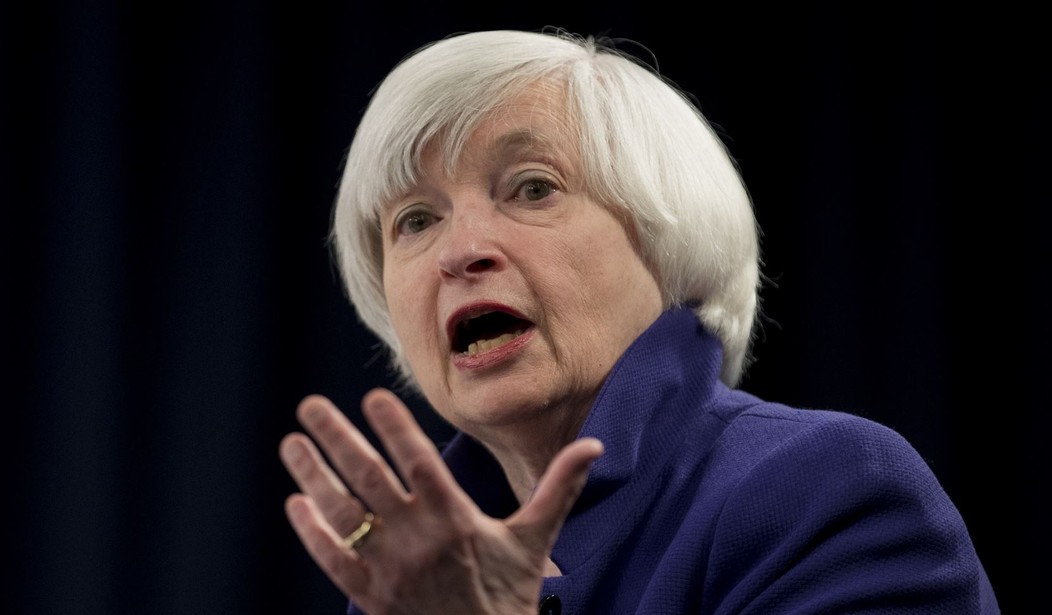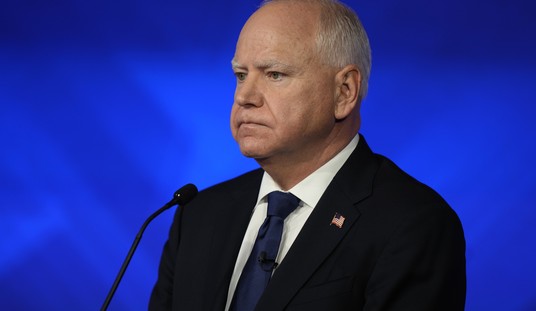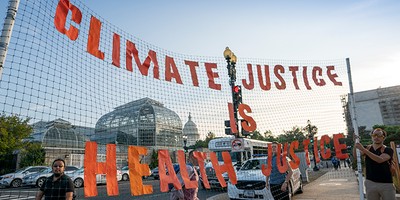The Biden administration has been full of some pretty despicable takes on abortion, especially in light of the U.S. Supreme Court looking to overturn Roe v. Wade with its upcoming Dobbs v. Jackson decision. Treasury Secretary Janet Yellen is no exception. It turns out she's not limited to bad takes on inflation.
Last month, while testifying at the Senate Banking Committee, abortion for some reason came up, and like a good soldier, Sec. Yellen promoted the heck out of abortion by tying abortion on demand in all 50 states, as Roe gave us, to economic opportunity. "I believe that eliminating the right of women to make decisions about when and whether to have children would have very damaging effects on the economy and would set women back decades," she even claimed.
.@SecYellen says Roe v. Wade "helped lead to increased labor force participation, it enabled many women to finish school that increased their earning potential, it allowed women to plan and balance their families and careers..." pic.twitter.com/FZu51HVfBJ
— CSPAN (@cspan) May 10, 2022
Not only is Sec. Yellen full of disturbing pro-abortion talking points, she's also factually incorrect. Many Republicans lashed out against her claims, including Rep. Burgess Owens (UT) and Sen. Tim Scott (SC). Republicans on the Joint Economic Committee (JEC) also put together a report, released on Wednesday, highlighting the economic cost of abortion when it comes to the amount of unborn lives lost.
As one of the "Key Findings" highlighted in the report's summary, "Abortion at its core is a moral issue rather than an economic one. But even in economic terms, the costs of abortion vastly outweigh any claimed benefits." The conclusion also emphasizes that the economic benefits are "short run" and the economic costs of abortion "outweigh" these market labor benefits.
The report was requested by Sen. Mike Lee (R-UT), the ranking member of the JEC, who is a particularly pro-life member of Congress.
Recommended
Thank you, @SenMikeLee, for requesting this report in response to @SecYellen's ridiculous claim that abortion is good for the economy.
— Students for Life Action (@SFLAction) June 17, 2022
We all know abortion is harmful to society. $6.9 trillion per year is the economic cost of abortion, but morally, it has bankrupted our country. https://t.co/dVandC5cXh
As it turns out, the report reveals, Sec. Yellen isn't alone in this harrowing view of the economy and abortion. In the Dobbs case, 154 economists submitted an amicus brief arguing the same point.
The eight-page report examines the economic loss for 2019 based on those abortion numbers from the Centers for Disease Control (CDC), as well as the long-term economic effects of abortion.
Using the value of a statistical life (VSL) from 2019, which the Department of Transportation has at $10.9 million for that year, JEC Republicans calculated that multiplying the nearly 630,000 reported abortions for that year by the $10.9 VSL, the economic cost of abortion was $6.9 trillion, which is 32 percent of GDP for 2019.
The report also cites economist pointed out that mothers see their earnings fall by an average of about $26,000 during the first six years of the baby's life. "If we apply this change in earnings to all mothers of the 630,000 aborted babies in 2019, abortion would prevent $16.2 billion in lost earnings during the first six years of the child’s life. The $6.9 trillion cost of the increased risk of mortality to unborn babies due to abortion is 425 times larger," the report notes.
It's worth emphasizing, though, as the report does, that these figures only cover 47 states plus New York City and the District of Columbia. States are not required to report their abortions, and California, New Hampshire, and Maryland to do so. The number is thus severely underestimated, especially considering California is the most populous state in the country and is one of the most pro-abortion states in the country.
When it comes to long-term effects, the report warns that "unrestricted abortion is likely to decrease labor supply in the long run," and also has the numbers to illustrate.
...Since the Roe decision in 1973 an estimated 63 million abortions have occurred in the United States. If all of these aborted babies had been otherwise carried to term and survived until today, they would add nearly 20 percent to the current U.S. population, and nearly 45 million would be of working age (18 to 64). While some portion of these aborted babies would not have survived pre- and post- birth and others would have displaced their mothers’ future children, research has shown that increasing access to abortion substantially reduces the total number of babies born. Thus, abortion has reduced the U.S. population, and in so doing, has shrunk the labor force, prevented innovative ideas from improving American lives, and suppressed total economic output.
"Abortion imposes external costs on society not reflected in JEC Republicans’ $6.9 trillion cost estimate. In the long run, abortion shrinks the labor force, stunts innovation, and limits economic growth," a key finding of the report summarizes as a concluding point. "It also weakens the solvency of social insurance programs like Social Security and Medicare that rely on workers to support a growing elderly population."
It makes sense. When less people are born, due to abortion, less people are able to contribute to the workforce and social insurance programs. We cannot expect a woman who has less children because she aborts them, to do enough work to make up that work that those unborn children would have provided. Such an argument from Sec. Yellen and other economists is also sexist in that it doesn't adequately consider how women can be mothers and also have a career and contribute to the economy.
We're also facing a population crisis in this country and in other parts of the world, which the point also acknowledges, pointing out that the fertility level for women in 2021 was 1.7 children, far below the 2.1 replacement level.
The report addresses this as well:
Reduced fertility due to unrestricted abortion also stresses society’s capability to care for older Americans. Older Americans (age 65 and older) comprised a record high of 16.3 percent of the U.S. population as of 2020, and this share is expected to increase to 20.4 percent by 2040. This demographic shift will make it more difficult for the relatively smaller number of children to care for their elderly parents. It will also add more pressure to Social Security and Medicare, which are funded by the wages of Americans who are currently working.
The so-called economic benefits of abortion aren't the only factually incorrect arguments to promote this moral ill, but it's certainly gained attention after Sec. Yellen furthered it. Pro-aborts also cite the factually incorrect claims about overpopulation and the overblown concerns with climate change. Kudos to Sen. Lee and Republicans on the JEC for setting the record straight.

























